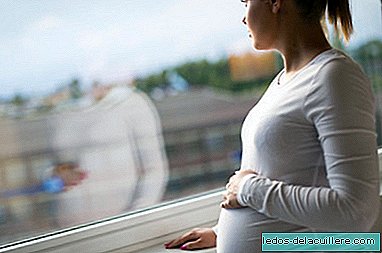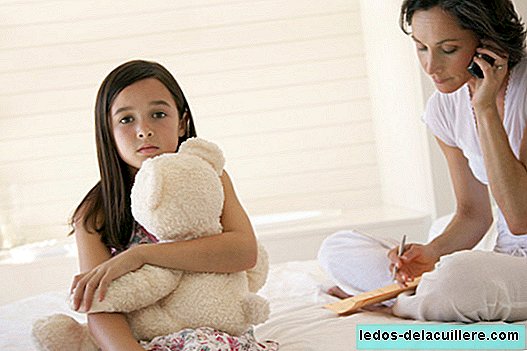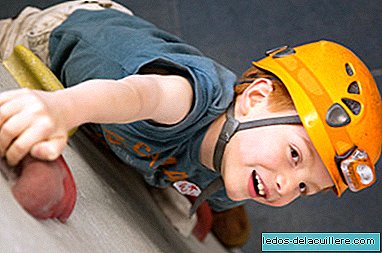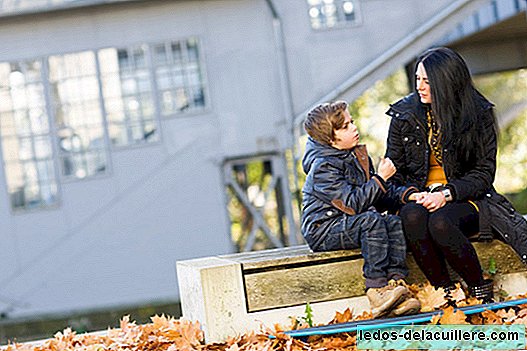Colds are common all year, but it seems that in winter, with the cold, babies, children and also the elderly we catch more diseases. There are many theories that try to explain this, but sometimes there are contradictions. For example, it is said that if a child goes very out of control in winter, he is more at risk of getting sick, but it is also said that if you have too much shelter, he can also catch a cold because you create a breeding ground for viruses.
It is also said that with heating and with a lot of children locked up the risk of contagion is greater, but we know that when a child catches a virus, his body increases the temperature causing fever, precisely to end it. It may be very difficult to explain why we catch more viruses in winter than in the rest of the year, but some scientists have conducted new research to try to answer the question: Why do children get more cold in winter?, and let's talk about it.
New research
Researchers at the Yale University School of Medicine have wanted to respond to this and, with the hypothesis that lowering body temperature drops and thus the ability of the immune system to fight against the rhinovirus (the common cold virus ), have studied mouse cells at different temperatures.
The rhinovirus, it seems, replicates more easily at a temperature of about 33 ° C than at a temperature closer to 37 ° C. However, at the time of joining the virus with cells at different temperatures the result was the same: it replicates more or less at the same speed. That is, viruses do not attack us anymore because our body is a little colder in winter.
AdvertisingThe reason, then, is another. The body temperature of our body is usually close to 37 ° C. In times of heat, the nose cells have a slightly lower temperature, but not much lower. In winter, on the other hand, the temperature of the cells of the nose can reach 33ºC and that is where the difference works. The virus replicates the same at both temperatures, as we have said, but the difference lies in how the immune system reacts: the lung cells of the mice, at 37 ° C, responded to the virus more intensely than the colder nasal cells. That is, it is not the virus that works differently depending on the temperature, but our body, which when it is colder it activates less before a contagion.
This is a possible factor, but there is more
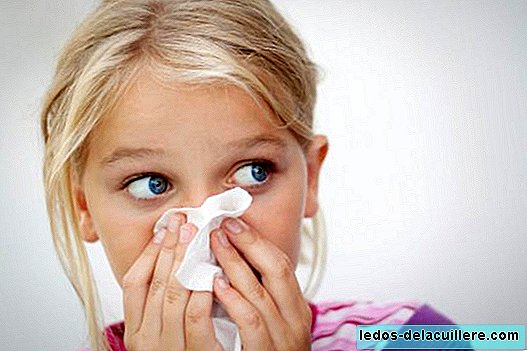
The researchers explain that this was not what they were looking for, because they believed that they would verify that the viruses replicate differently at colder or hotter temperatures, but that this is what they found and that, obviously, we would have to do new experiments with animals, and not only with their cells in a laboratory.
If confirmed, we already have one of many causes that answer the question, and I say one of many because there is more. Do we get a cold because it is colder or because our cold lifestyle is different? Because when it's hot we spend more time on the street, the windows are open and the air is always being renovated, but when it's cold we lock ourselves more, the ventilation is less and consequently it is easier for us to infect each other.
This theory, for example, is followed in the Nordic villages, where it is a terrible cold and where, to our surprise, children take naps below zero and play outside.
Having the children in a closed classroom, with a high temperature (we have already said that at a high temperature the virus replicates better) and with stale air it is a great help to get it. Being at home in the same way, the same, more chance of getting infected. If we open the windows or take them out? Our nose will get cold and then our immune system will have more difficulty attacking the virus, but perhaps because it is air that renews the risk of infection is less.
Come on, there is no way to know (for now) which system is better to avoid colds, but at least we already know something else about how we get infected.
What about sheltering them a lot or a little?
Pure logic If we shelter them little, what the researchers say may happen, that the cells of the nose, the first ones that begin to fight against viruses, do not activate properly. But if we shelter them a lot, we run the risk that they start to sweat and that they are uncomfortable.
Being too hot because of the clothes leaves the baby or child irritable, with discomfort, and this can also affect your immune system. Viruses, of course, are easier to spread if the recipient has the immune system touched. That is why there are times when once they take something, it seems that the thing is eternalized because when they release a virus, they take another.


